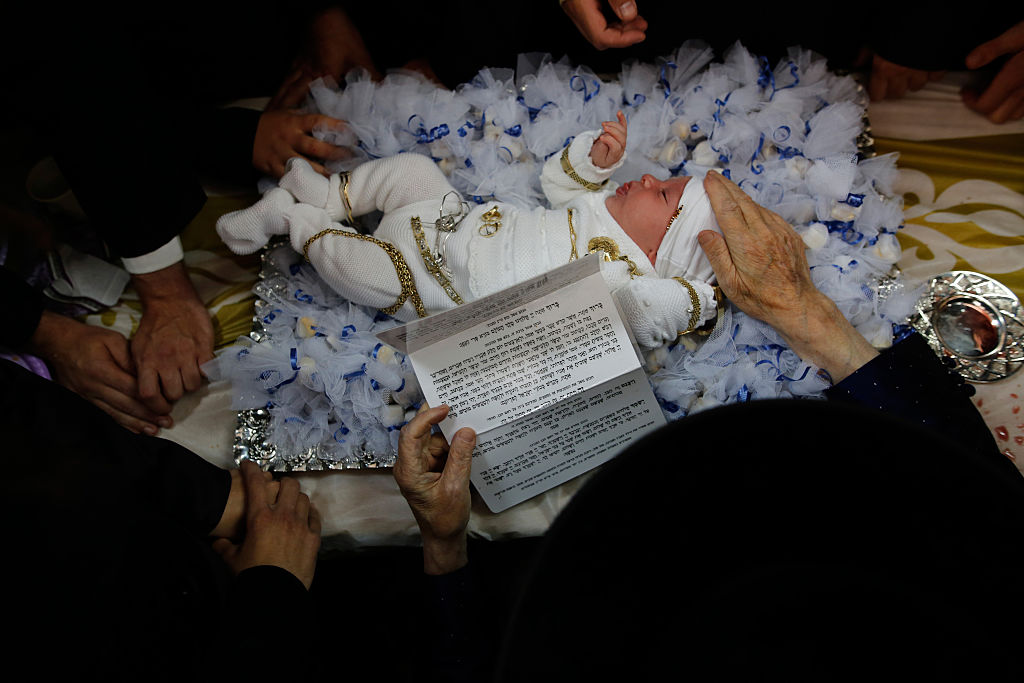Pidyon haben refers to the ceremony of the redemption of the first-born son. Jewish tradition ties this ritual to the Exodus from Egypt, when the first-born sons of the Egyptians were killed but those of the Israelites were spared and hence consecrated to God.
God commands the Israelites that once they arrive in the land of Canaan, they must “redeem every first-born male among your children” (Exodus 13:13). In Numbers 18:16, the time of redemption is set on the child’s 31st day and the price at five shekels.
The child is redeemed by paying the modern equivalent of five shekels — via coins or, in some traditions, objects of value — to a kohen, a descendant of Aaron the priest. The ceremony is performed for the first child of a mother who has “broken the womb” — hence a child delivered by cesarean section or the child of a woman who has miscarried would not be redeemed.
Some liberal Jews have expanded the ceremony to include first-born daughters.
With your help, My Jewish Learning can provide endless opportunities for learning, connection and discovery.



